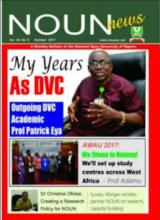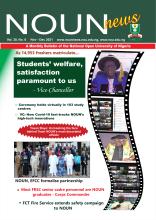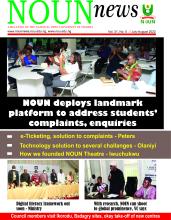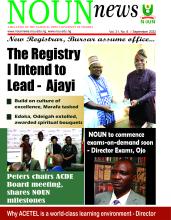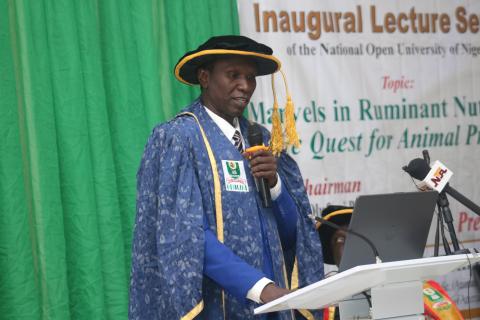
A professor of Animal Science in the Faculty of Agricultural Sciences, National Open University of Nigeria (NOUN), Ahmed Amin Njidda, has highlighted the importance of tiger nut and advocated for its adoption in feeding sheep and other ruminant animals.
Njidda disclosed this on Thursday, July 25, 2024 at the university headquarters in Abuja, while presenting NOUN's 26th Inaugural Lecture.
He presented on the topic: “Marvels in Ruminant Nutrition: The Quest for Animal Protein."
The event has become a cornerstone in the academic calendar of the institution, bringing together scholars, students, family and other distinguished guests.
His research outcome demonstrated the benefits of feeding sheep with tiger nut, optimising their nutrient intake and performance.
Njidda emphasised on the vital role of animal protein in a balanced diet and the importance of understanding ruminant nutrition for optimising livestock production and ensuring food security.
He highlighted that as Nigeria's population grows, so does the demand for sustainable food sources.
He presented findings from numerous studies demonstrating the correlation between nutrition and productive performance in animals.
These studies, according to him, underscored how feeding patterns, along with the quality and quantity of feed, directly affect animal health and reproduction.
The professor of Animal Science also touched on the socio-economic importance of ruminants for millions of poor farmers, highlighting their role in providing economic stability, cash buffers, and essential commodities such as traction, manure for fertilizers, and fiber.
The don detailed how ruminants contribute to food security, noting that they account for 51% of all protein from the livestock sector, with 57% coming from milk and 30% from meat.
His research further delved into the utilisation of marginal land and water resources, converting them into valuable, high-quality products.
He emphasised the necessity of optimising available materials to enhance production efficiency in both intensive and extensive production systems.
Njidda expressed his gratitude to the Vice Chancellor, Prof. Olufemi Peters, for the opportunity to deliver the inaugural lecture and for his support in advancing his research career.
He underpinned the importance of continued research and innovation in ruminant nutrition to boost food production without causing environmental harm, thus contributing to food security and economic development in Nigeria and sub-Saharan Africa
Earlier, the Vice- Chancellor, Prof. Olufemi Peters, expressed his pleasure and anticipation, highlighting the significance of the Inaugural Lecture Series as a platform for scholars to share groundbreaking research with the academic community and the public.
Peters emphasised the importance of the day's lecture by Professor Njidda, promising to shed light on a critical area intersecting agriculture, food security, and human well-being.
At the end of the lecture presentation, Peters lauded Njidda for what he described as illuminating and insightful lecture.
He emphasised that the lecture was not merely an academic exercise but a beacon illuminating the path to a healthier, more sustainable future.
The VC highlighted the critical role of research and innovation in addressing global challenges and thanked Professor Njidda for his invaluable contribution to the academic community.
The event concluded with a vote of thanks by the DVC Academic, Professor C.F. Mafiana, acknowledging the efforts of everyone involved in making the lecture a success.
"We are deeply grateful to Professor Ahmed Njidda, for his enlightening presentation on 'Marvels in Ruminant Nutrition: The Quest for Animal Protein.'
"Your work is an inspiration to us all, and we look forward to continuing our journey towards academic excellence and societal impact."
He also thanked Vice-Chancellor for his unwavering support and vision that make events like this possible, stating that his leadership continues to drive NOUN toward new heights of academic excellence and societal impact.
- Log in to post comments
- 144 views

